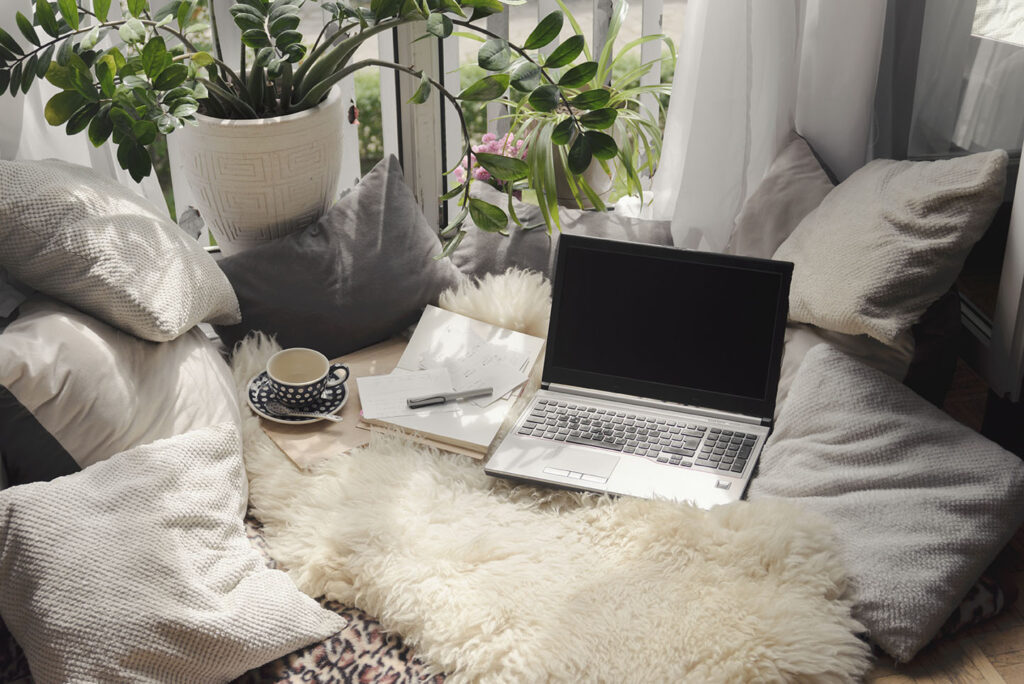Hygge is one of the most famous words in Danish, whose significance has been recognized internationally, for instance by the Oxford English Dictionary in 2017 or by french dictionary Le Petit Robert in 2020. Its recent success illustrates the soft power of one of the happiest countries in the world and emphasizes the importance of well-being in our modern societies. In fact, hygge is deeply rooted in danish history and it means much more than feeling well in a nice and comfortable environment. How much could this philosophy of life be a source of inspiration in these times of pandemic?
Hygge in the country of Andersen
When arriving in Copenhagen in the fall of 2018, I heard about hygge as the danish translation of cosiness, gemütlichkeit or convivialité. I imagined that feeling well at home and at work was important to survive the long and dark danish winters, and I knew the importance of light in Nordic countries. Ironically, “lysestage” (“candlestick”) was among the first words I learnt in my Danish lessons. Of course, I was puzzled by the notoriety of this word outside of Denmark. But I put it on the danish talent to brand Denmark and to promote travelling in a country with cold strands and flat landscapes.
I was wrong.
The legacy of Grundtvig: making a choice
At first glance, it seems very easy to practice hygge: you just have to drink beer with good friends around a table with a few candles (lighting candles seems to be a prerequisite to create a hyggelig atmosphere).
Actually, it’s more than that.
To understand the importance of hygge in Denmark’s culture, you have to dive into the danish history, at the end of the 19th century when Denmark, which used to be a dominant country in the Nordic region, lost large parts of its territories at the expense of Sweden (Scania) and Germany (the Second Schleswig War in 1864). At the time, a Lutheran pastor, Nikolai Grundtvig, played a significant role in helping the Danes recover from this hardship and to regain confidence in the future of their country.
His secret: putting human beings at the centre. He convinced the Danish people it was possible to compensate the loss of territories by finding new resources in themselves and strength in togetherness. In other words, to compensate external losses by internal gains. It was a fundamental contribution to helping Denmark transform itself and enter into modernity. Grundtvig’s genius was to turn constraints into assets. And it has remained a strong feature of Denmark in many regards to this day. It explains, in particular, why Denmark is still ranking among the happiest nations in the world according to the World Happiness Report. The Danes made a choice. They made a choice of thinking positively, of being confident in the future, of being happy as a nation.
Recalling this historic background is very important to understand why hygge is a defining feature of danish cultural identity. And why it may be difficult to experience it when you are not Danish!
What about hygge in a time of lockdown?
Even though we non-Danes are not programmed to be hygge-addicted, it is possible to be inspired by this philosophy of life which puts people at the centre.
At work, the concept of hygge has been applied in many aspects. For instance, the work/life balance both in the public and private sector (meaning that scheduling a meeting at 4 in the afternoon is not an option); the flat organization of work providing autonomy and a sense of responsibility to the staff; the importance of design in the workplace and serving good food in company restaurants (in some, you can even order meals for dinner if you are in a rush). Not to mention the many moments devoted to gathering teams for a drink at the end of the workday or a lunch (in particular around Christmas, the very famous “julefrokost”).
The big question of 2021 is: How can hygge survive remote work and the absence of social contact within a team or with friends?
For sure, hygge matches better to the current time of pandemic than the movida! Anyway, the Danes are used to staying at home more in the winter and teleworking was already very common before the crisis. Nevertheless, like in many countries, they badly miss restaurants, bars and theatres which are currently closed. How can you be happy despite everything? How can you be happy when you’ve lost so much of what you valued the most in your daily life?
Maybe by staying confident in the future, by sticking to the rules and playing collectively, for instance in the vaccination campaign (not surprisingly, Denmark is the most advanced European country for vaccination), in order to be able to come back to more normal life as soon as possible. I’ve also noticed that many CEOs of major Danish companies have recently been very present in the media to communicate their values and their strategy, using this particular time as a period of reflection for the sake of the community’s future.
In March 2020, the Ambassador hosted the ESCP IoT specialisation class during their learning expedition to Copenhagen.
Feature photo credit: Seligaa – stock.adobe.com.
